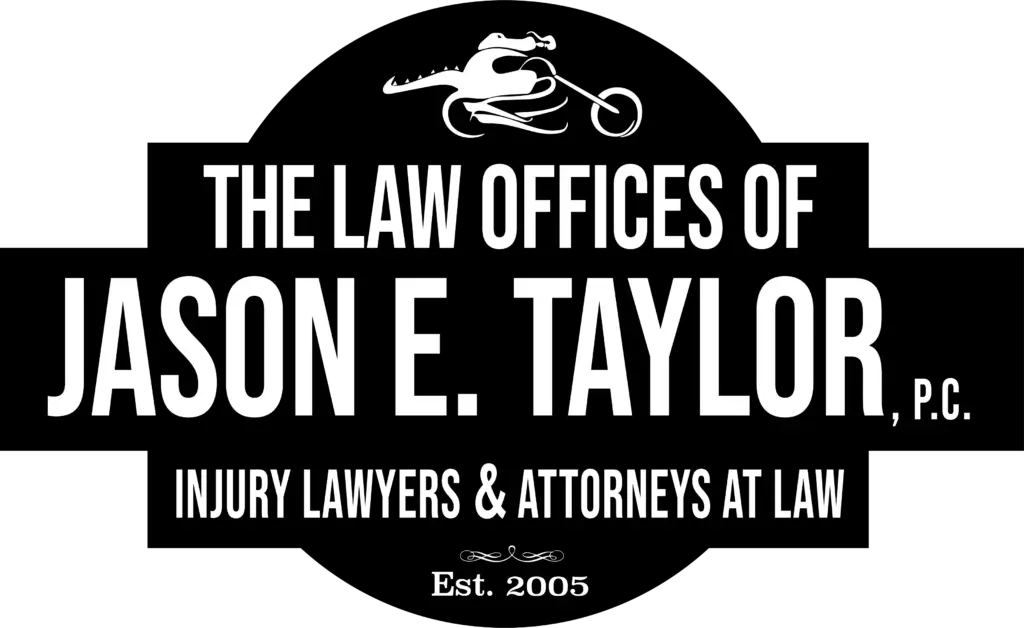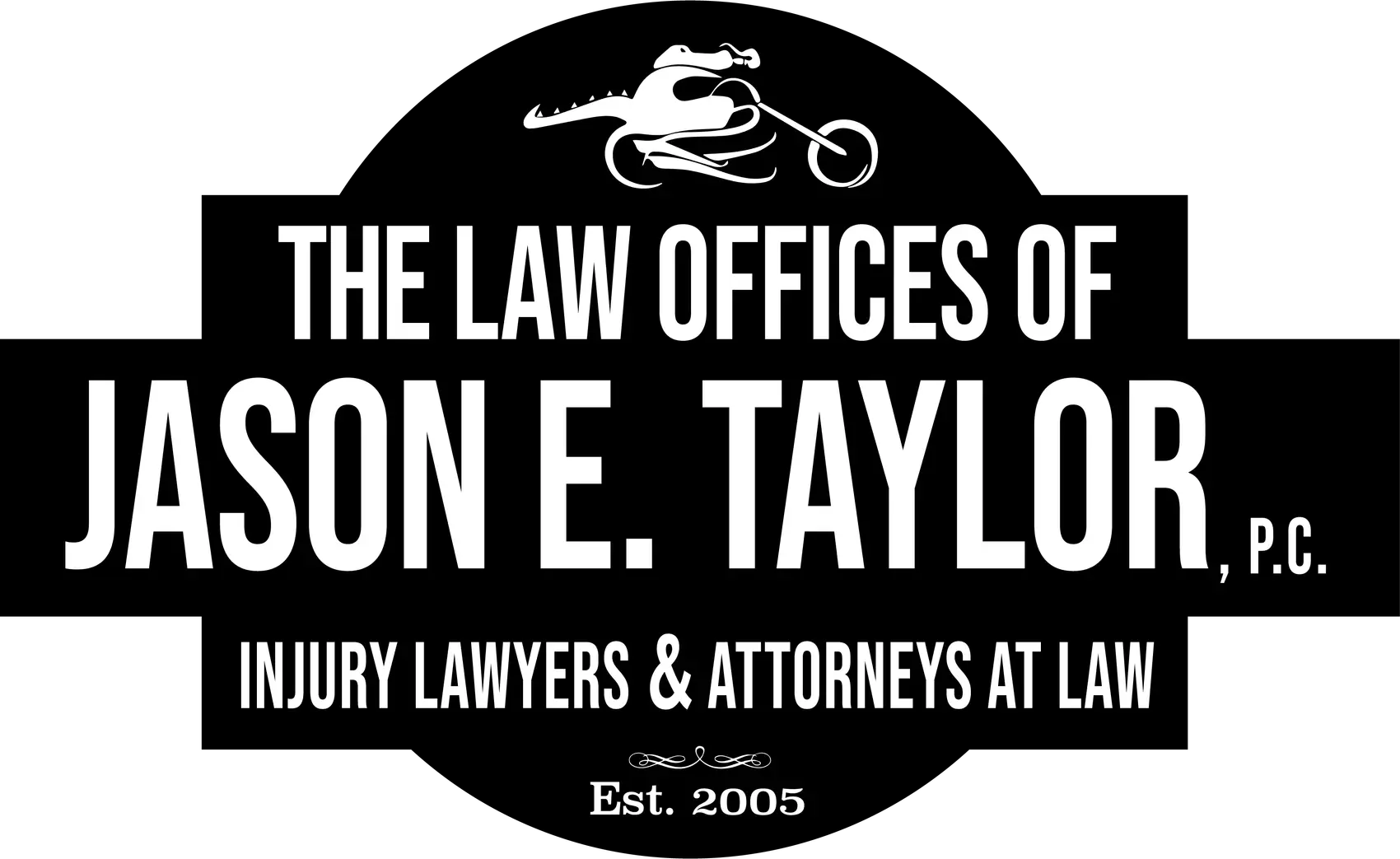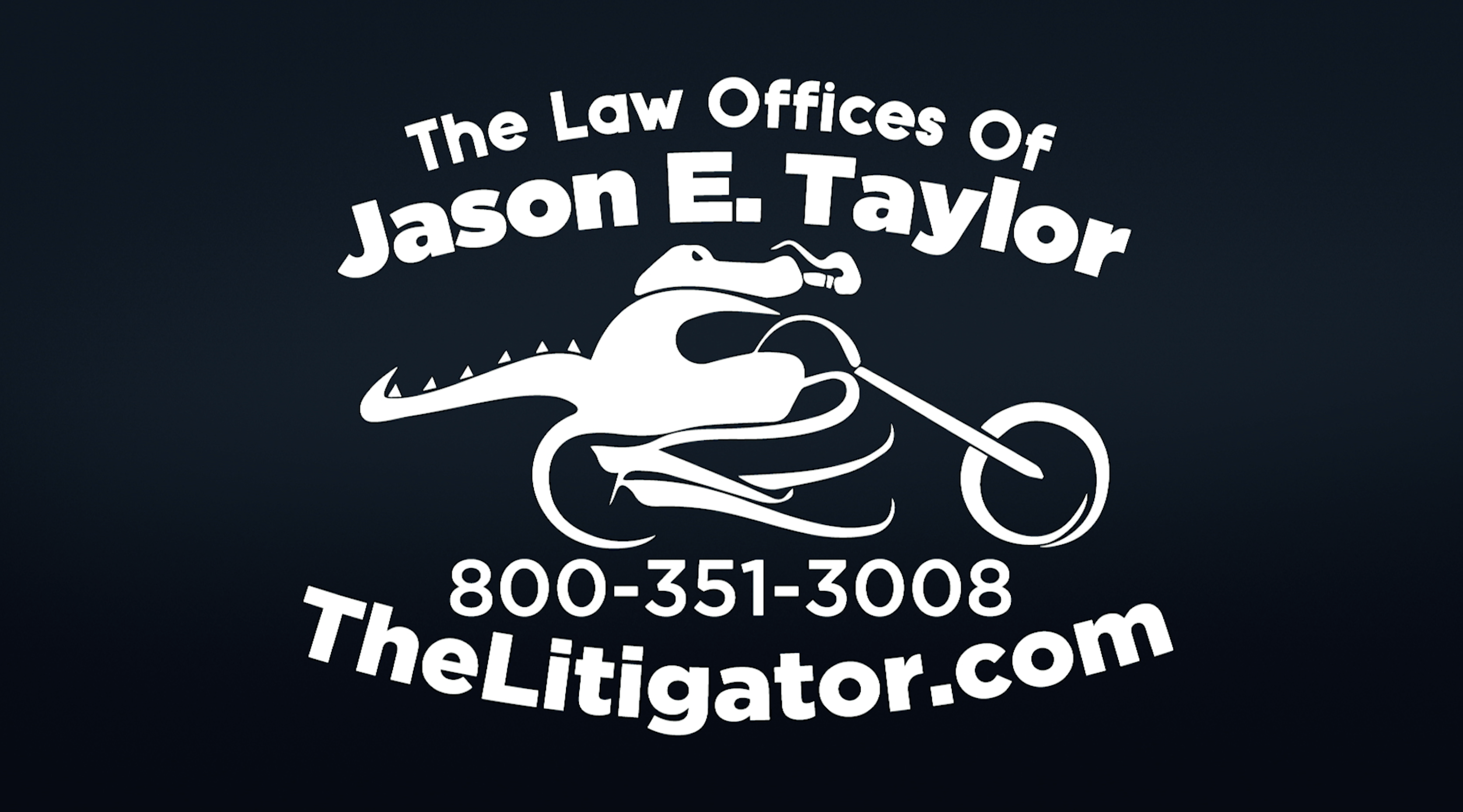North Carolina Motorcycle Accident Attorney and Firm Founder Jason E. Taylor is a motorcycle enthusiast and member of the American Motorcyclist Association, the Concerned Bikers Association, and other organizations dedicated to the safety and well-being of fellow riders. His own passion for riding has been a driving force behind his commitment to fighting aggressively on behalf of motorcyclists who have suffered injuries in all types of preventable wrecks across North and South Carolina.
If you or someone you love has been injured in any type of motorcycle collision, you can be confident about placing your trust in The Law Offices of Jason E. Taylor.
Our legal team draws from over 100 years of combined experience to investigate the underlying cause of motorcycle wrecks and pursue a full recovery of damages from the at-fault party. We encourage you to call (800) 351-3008 24/7 for a FREE consultation.
Factors in Motorcycle Wrecks
Many factors can cause motorcycle accidents. When it comes to personal injury or wrongful death claims, victims will need to prove that negligence, in whatever form it took, more likely than not led to the accident and subsequent injuries or death.
Below are a few of the most common causes of motorcycle accidents:
- Intersections – Statistics show a large percentage of motorcycle accidents occur at intersections. This is due to the dangers of cars making left-hand turns.
- Commonly motorists who make left turns will fail to see a motorcycle going straight through an intersection or passing a vehicle due to inattention, distraction, or sheer negligence. Motorists must yield at left hand-turns when there is no protected turn arrow, and they can be held at fault when they fail to do so.
- Lane changes – Because motorcycles are smaller than passenger vehicles, they are often overseen by motorists who attempt to change lanes. When motorists fail to properly survey their surroundings and change lanes without knowing the coast is clear, they can cause collisions with riders. This is why riders should always make sure drivers can see them. However, a distracted, inattentive, or otherwise negligent motorist can still cause accidents when making unsafe lane changes.
- Distraction – Distracted driving has become one of the most concerning dangers on public roads. Experts believe it is a primary reason behind the increasing number of roadway injuries and deaths across the nation. Drivers who choose distractions over the task of driving, such as texting or using a cell phone, are committing serious acts of negligence that endanger all others around them, and especially motorcyclists who can be easily overlooked by drivers who aren’t distracted at all.
- Not enough space – Drivers who follow too closely or are otherwise inattentive when behind a motorcycle can cause rear-end collisions. Motorcycles are small and have shorter stopping distances, so drivers of passenger vehicles should follow at safe distances and be prepared to stop. After all, rear-end wrecks can be fatal for riders. Additionally, drivers should provide enough space when passing motorcycles. If they cannot provide at least three feet of clearance when passing a rider, they should wait until it is safe to do so.
- Alcohol – Statistics from the National Highway Traffic Safety Administration (NHTSA) report that alcohol plays a role in nearly half of fatal motorcycle accidents. This can include both driver and rider impairment. Even when riders obey the law and ride sober, they can still fall victim to motorists who choose to get behind the wheel while under the influence of alcohol or drugs.
- Driver fatigue – Studies have found that driving fatigued or sleep-deprived can be just as dangerous as driving under the influence of alcohol. Tired drivers are less likely to be aware of their surroundings, including nearby motorcyclists, and responsive when making driving maneuvers. A tired driver can prove deadly when motorcycle riders are nearby.
Motorcyclists face numerous dangers on the road, many of which are posed by driver error. Even when riders are extra vigilant, they can still suffer harm in accidents when others are negligent. Fortunately, they have the right to hold negligent drivers liable for their damages by pursuing personal injury claims.
Call (800) 351-3008 for a FREE Consultation
Our legal team at The Law Offices of Jason E. Taylor is available around the clock to help injured riders and their families learn about their legal rights following preventable wrecks.
We know that accidents can create overwhelming challenges for both victims and their loved ones, which is why we go the extra mile to ensure they have the compassionate support and experienced representation to secure the justice and compensation they deserve. By leveraging our experience and insight, we also fight back against insurance companies that quickly dispute claims and blame riders for causing or contributing to wrecks.
If you wish to discuss a motorcycle accident case with an attorney from our firm, call (800) 351-3008 24/7 for a FREE consultation.
Contact our Personal Injury Attorneys
Contact us today to speak with one of our Charlotte, Hickory, Greenville, Rock Hill, or Columbia attorneys.







